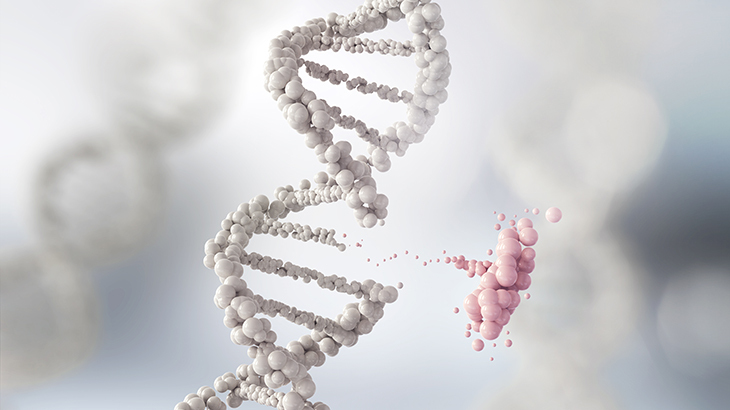What is genetics

Nowadays, many diseases are fundamentally caused by genetic or hereditary factors. Genetic tests play a crucial role in identifying such diseases and predispositions to certain health issues. Through these tests, it is possible to obtain a wide range of information, from diagnosing rare diseases to detecting potential conditions in unborn babies.
What is genetics?
Genetics is a branch of science that studies DNA and the components it produces. All living organisms—plants, animals, humans, and even bacteria and viruses—are made up of cells containing DNA or RNA, which carry information. These molecules include data not only about physical characteristics like hair and eye color or height, but also about disease susceptibility, behavioral traits, and how organs function. The information in our DNA is passed on directly or indirectly to our children. These chains, which form the basis of hereditary structures, are transmitted from generation to generation. The information that shapes our lives is present in our DNA from the moment we are born.
What are hereditary diseases?
Hereditary diseases are disorders caused by defective genes passed down from parents. These conditions can be inherited in different ways. In some cases, one parent must have the disease for it to appear, while in others, both parents may be carriers and appear healthy, yet still pass the condition to their child. This is why the risk of hereditary diseases is higher in consanguineous (related) marriages. Examples of such diseases include SMA, Thalassemia, Huntington’s disease, phenylketonuria, and night blindness. Additionally, it is known that common diseases such as heart disorders, high cholesterol, and diabetes can also be passed on genetically. Individuals with mutations in their genetic makeup may show symptoms of genetic diseases either from birth or at some point in their lives. The decoding of human DNA structure in the 2000s has allowed for more detailed information about hereditary diseases. As a result, genetic screening tests are becoming increasingly widespread.
What is a genetic test?
Genetic tests are used to detect genetic diseases or predispositions in an individual. They can be performed using samples such as blood, saliva, bone marrow, urine, or amniotic fluid. DNA is isolated from the sample, and specific genes or gene regions are analyzed for mutations.
What are the types of genetic tests?
- Chromosome analysis
- FISH (Fluorescence in situ hybridization)
- Array CGH (Molecular karyotyping)
- PCR (Polymerase chain reaction)
- DNA sequencing (Sanger sequencing, next-generation sequencing, exome analysis, etc.)
These methods can be used individually or in combination depending on the disease type. Especially in undiagnosed syndromic conditions, multiple tests may be required.
What is pharmacogenetic analysis?
Each person’s response to medication may differ. These differences are related to the genetic structure of the enzymes that metabolize the drugs. Pharmacogenetic tests can predict a person's sensitivity or resistance to a drug in advance. This is particularly important for medications used in psychiatric illnesses, cancers, and heart diseases.
How is a genetic test performed?
DNA is isolated from the sample (blood, saliva, bone marrow, etc.), and targeted tests are carried out using this DNA. Paternity testing, disease risk screenings, and cancer mutation tests can all be performed this way.
Who should get a genetic test?
- Children with intellectual or developmental delay, or physical abnormalities
- Couples with recurrent pregnancy loss
- Individuals with infertility issues
- People with a family history of cancer
- Individuals carrying hereditary cancer mutations
- People with neurological disorders (e.g., epilepsy, autism, ALS, Alzheimer’s)
- Individuals in consanguineous marriages and with a family history of genetic diseases
- Those who want a personal genetic check-up
How long do genetic test results take?
The time varies depending on the type of test and the laboratory. For instance, some cancer tests may yield results in a few days, while whole exome analyses may take 4–6 weeks.
Who is recommended to seek genetic counseling?
Individuals with a history of genetic diseases, couples seeking preconception screening, individuals and family members with chromosomal disorders, those with recurrent miscarriages, and individuals planning to have children at an older age should consider genetic counseling.
Are allergic diseases genetic?
The higher frequency of allergic diseases in individuals whose parents also have allergies suggests a genetic predisposition. There are also certain genetic syndromes that can cause allergies, and these can be detected with genetic tests. Additionally, conditions like gluten, lactose, and caffeine intolerance can also be evaluated through genetic testing.
What are the benefits of genetic testing?
For example, if individuals who are carriers of SMA undergo testing with their partners, the risk of their child being born with this disease can be prevented. Healthy embryos can be selected via in vitro fertilization. Similarly, individuals at risk of hereditary cancer or other genetic conditions can take preventive measures by being aware of their genetic profile.
What is the accuracy rate of genetic tests?
Depending on the type of test, the accuracy rate of genetic tests generally ranges from 98% to 99.9%.
Are genetic screening and genetic testing the same thing?
Yes. Genetic screening can be performed for one or more diseases, or it can involve broad analyses that cover all disease-causing genes. These tests are typically referred to as WES (Whole Exome Sequencing) or WGS (Whole Genome Sequencing).